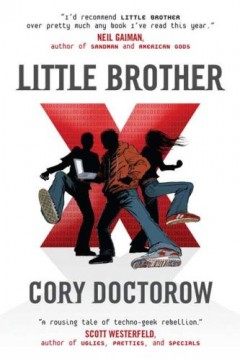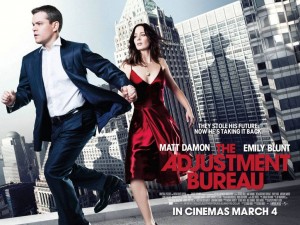A few years ago in honor of Arthur C. Clarke’s then-recent birthday, I wrote on my own blog that he must never have read Ludwig von Mises and Murray Rothbard,
because according to this quote cited by Gregory Benford in his happy-birthday letter in Locus Magazine (January 2008), he claims that “there are some general laws governing scientific extrapolation, as there are not (pace Marx) in the case of politics and economics.” Well, far be it from me to disagree that Marx was wrong about a lot of things, but Clarke is wrong here. Sir Clarke, you may be 90 years old now, and happy birthday by the way, but it’s never too late to acquire a firm grasp of sound economic theory.
As disappointing as it is, it’s not surprising that he had a natural-scientistic bias against economics. Sadly, he died only a few months after my post.
In a more recent article in the Sri Lanka Guardian, more of Clarke’s economic ignorance is on display:
While researching for this article I came across a searing indictment by Clarke on the American capitalist system. After observing that the structure of American society may be unfitted for the effort that the conquest of space demands he continued, “No nation can afford to divert its ablest men into essentially non-creative and occasionally parasitic occupations such as law, insurance and banking”. He also referred to a photograph in Life Magazine showing 7,000 engineers massed behind a new model car they had produced as ‘a horrifying social document’. He was appalled by the squandering of technical manpower it represented. All this indeed makes one wonder whether he really was a closet socialist.
[continue reading…]
Help Promote Prometheus Unbound by Sharing this Post
- From io9 comes this story of a supermodel brainwashed to work for the CIA:
In the movie Salt, Angelina Jolie plays a double-agent who is mind-controlled by scary remnants of the USSR secret service. And in real life, the 1940s bombshell Candy Jones was apparently brainwashed with drugs and used as a CIA covert operative. At least, according to testimony that Jones gave while under hypnosis, after her husband realized that she was acting strangely and seemed to have a split personality. Several years ago, the Fortean Times described what Jones reported while hypnotized: More »
- To critics of Ayn Rand’s Atlas Shrugged who sneeringly intone that her plot and villains are unrealistic, John Stossel observes:
Joe Biden Railroad
It’s amazing how modern politics resembles scenes of Ayn Rand’s best-seller Atlas Shrugged.
Like the one in which a high-ranking government official pumps millions of dollars into a failing railroad company. The grateful railroad CEO rewards the government official by renovating his hometown train station and naming it after the government official. The renovation costs $5,700,000 more than expected.
Then comes the ribbon cutting ceremony. The CEO gets on one of his trains to go to the ceremony, but it breaks down. No surprise there: One out of every four trains his company runs is late [pdf]. The CEO, chuckling at the irony, abandons the train and takes a car to the ceremony.
Unfortunately, that wasn’t a scene in Atlas Shrugged. It happened this weekend.
The government official is Joe Biden.
By the way, the first of three Atlas Shrugged movies opens next month, appropriately on April 15th.

Do you know of any other examples?
Help Promote Prometheus Unbound by Sharing this Post

Good things come to those who wait, the old adage goes, and the world has waited a century for Mark Twain’s autobiography, which, in Twain’s words, is a “complete and purposed jumble.” But this 760 page jumble is a good thing. And well worth the wait.
 Twain, or Samuel L. Clemens, compiled this autobiography over the course of 35 years. The manuscript began in fits and starts. Twain, while establishing his legacy as a beloved humorist and man of letters, dashed off brief episodes here and there, assigning chapter numbers to some and simply shelving others. In 1906, he began making efforts to turn these cobbled-together passages into a coherent narrative. He even met daily with a stenographer to dictate various reflections and then to compile them into a single, albeit muddled, document. The result was a 5,000 page, unedited stack of papers that, per Twain’s strict handwritten instructions, could not be published until 100 years after his death.
Twain, or Samuel L. Clemens, compiled this autobiography over the course of 35 years. The manuscript began in fits and starts. Twain, while establishing his legacy as a beloved humorist and man of letters, dashed off brief episodes here and there, assigning chapter numbers to some and simply shelving others. In 1906, he began making efforts to turn these cobbled-together passages into a coherent narrative. He even met daily with a stenographer to dictate various reflections and then to compile them into a single, albeit muddled, document. The result was a 5,000 page, unedited stack of papers that, per Twain’s strict handwritten instructions, could not be published until 100 years after his death.
To say that we’ve waited a century to view this manuscript is only partially accurate because pieces of the manuscript appeared in 1924, 1940, and 1959. But this edition, handsomely bound by the University of California Press, and edited by Harriet Elinor Smith and others of the Mark Twain Project, is the first full compilation of the autobiographical dictations and extracts to reach print. The editors, noting that “the goal of the present edition [is] to publish the complete text as nearly as possible in the way Mark Twain intended it to be published before his death,” explain that “no text of the Autobiography so far published is even remotely complete, much less completely authorial.” The contents of this much-awaited beast of a book, then, are virtually priceless, and no doubt many of the previously unread or unconsidered Twain passages will become part of the American canon.
Stark photographs of the manuscript drafts and of Twain and his subjects — including family members and residences — accompany this fragmentary work. The lively and at times comical prose is in keeping with the rambling style of this rambling man whom readers have come to know and appreciate for generations. Would we have expected any less?
[continue reading…]
Help Promote Prometheus Unbound by Sharing this Post

Cory Doctorow’s Little Brother is a tale about tech-savvy teenagers as they rebel against a Department of Homeland Security crackdown following a terrorist attack on San Fransisco. A piece of YA fiction that even adults can enjoy — it’s YA largely because of its teenage protagonists and its educational aim at young people — Little Brother is the 2009 Prometheus Award winner for best libertarian novel. Little Brother also won the John W. Campbell Memorial Award and was a finalist for the Hugo Award.
Little Brother is set entirely in San Fransisco, California, in the very near future. Much of the technology in the story is already available, and what is not can easily be conceived as being on the horizon. The story is told entirely in the first person, from the point of view of the main character, Marcus Yallow. Marcus at first goes by the handle w1n5t0n (Winston in leetspeak, a homage to George Orwell’s 1984, as is the title of the book) but later switches to M1k3y (which could be a reference to the computer Mike in Robert Heinlein’s The Moon is a Harsh Mistress).
As the story opens, we are introduced to Marcus and three of his friends — Jolu (Jose Luis), Van (Vanessa), and best friend, Darryl — who ditch school to play an ARG (Alternate Reality Game) called Harajuku Fun Madness in and around the city. They happen to have the misfortune of being in the wrong part of town when terrorists blow up the Bay Bridge. In the chaos and confusion that follows, they get picked up by the Department of Homeland Security and then subjected to several days of interrogation and psychological torture in a “Gitmo by the Bay” before being released (with the exception of Darryl) with threats to keep quiet about their experience…or else. But once set free, Marcus and his friends are disturbed to see their city being turned into a police state.
Marcus resolves to fight back against the DHS, to restore civil rights and liberties and to free Darryl. He soon becomes the unofficial leader of a growing, decentralized movement of rebellious teenagers. But his covert struggle starts to put a strain on his relationships with his family and friends.
[continue reading…]
Help Promote Prometheus Unbound by Sharing this Post

Aaron Eckhart plays SSgt. Michael Nantz

One way to determine just how predisposed one is to sci-fi is by comparing one’s opinion of Battle: Los Angeles with one’s opinion of Black Hawk Down. This opportunity is now available to theater-goers because the former movie was made by taking the old reels of the latter movie and digitally inserting aliens. This of course is not literally true (though it gives the good reader a very good idea of what to expect should he purchase tickets) so it’s not a perfect test. Black Hawk Down, as I recall, had some directorial flourishes and humorous moments that were absent from its sci-fi version, while the sci-fi version manages to pull more of a plot together amid all those bullets and explosions (indeed, I remember thinking, after Black Hawk Down, that the moviemakers had saved some money on production by bypassing the screenwriter at the cost of a missed opportunity to make a good movie). These variables aside, the two flicks are remarkably similar and one may take the test at theaters over the next handful of weeks.
For me, adding aliens to the plot, such as it is, went some way towards making the movie a more enjoyable experience. This should not be misconstrued as an endorsement for the movie with no reservations, merely a preference for one military action demo reel over another. As Shakespeare wrote, “If two men ride of a horse, one must ride behind.” If I am going to sit through about 100 minutes of violence and destruction by way of an armed forces recruitment video, there at least ought to be an alien invasion.
[continue reading…]
Help Promote Prometheus Unbound by Sharing this Post

- NASA wasted over $400 million taxpayer dollars last week as its new global warming research satellite (I thought the science was settled?) failed to make it onto orbit. The cause? A rocket “glitch.” That’s the second time in two years. Just abolish the agency and myriad regulations already to make way for private space endeavors.
- A recent episode (S2Ep17) of the tv series Community mocks politics and student government elections, that training ground for our future rulers. You might want to watch it on Hulu.com, while it’s still available, before reading the rest of this entry as I picked out my favorite parts to highlight and they might spoil it for you.
Britta, the same character concerned with orc/goblin (I forget) property rights in the AD&D episode, declares that democracy (rule by the people ) is a sham and that human beings should not be governed. But she’s not well-received by the masses. Pierce (Chevy Chase) enters the race simply to harass a fellow candidate for not loaning him her pencil earlier. Jeff enters simply to demonstrate to the lone serious candidate, Annie, who comes off as a typical hyper-competitive douchebag, that he can beat her simply by uttering empty feel-good slogans, prompting her to turn to dirty politics in order to embarrass him into pulling out of the race. There are several other joke candidates as well. Good stuff.
[continue reading…]
Help Promote Prometheus Unbound by Sharing this Post


Some years ago I bought the first book of Isaac Asimov’s Foundation series, made it to approximately page 40 and tossed it aside. The writing was unimpressive, but not so bad that I would have normally opted to leave it unfinished. The problem for me was that I was not willing to suspend my disbelief so as to accept the author’s premises. I did not see the point in exploring something so patently untrue, and if his prose was going to be that insipid, with nothing especially arresting about the early part of the plot, then the opportunity cost was too high. I felt much the same as I watched The Adjustment Bureau, though I did sit through until the end.
In this film’s particular world, the human race has been guided through the centuries, off and on, by an entity referred to as The Chairman who has in his employ a number of beings, human in appearance, with extraordinary powers. The Chairman took the human race from barbaric tribalism to the height of the Roman Empire before deciding to allow us to make our decisions for ourselves. What followed were the Dark Ages, so this benevolent dictator assumed control once more and guided us through the Renaissance and the Enlightenment up to about 1910, whereupon we were given one more chance to be free. We produced WWI, The Great Depression, WWII and brought the world to the brink of nuclear holocaust, so we lost our freedom yet again, presumably for good this time.
[continue reading…]
Help Promote Prometheus Unbound by Sharing this Post
















